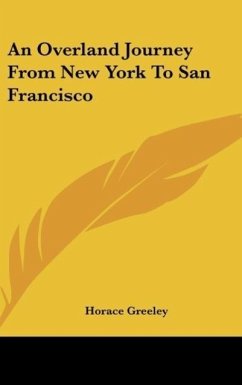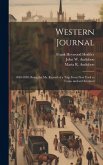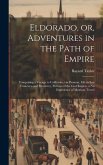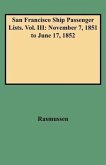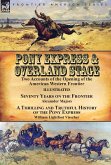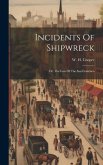In the spring of 1859 Horace Greeley, celebrated editor of the New-York Tribune, set off to explore the projected central route for a great transcontinental railroad line connecting the Mississippi Valley and the West Coast. Greeley traveled to California, primarily by stagecoach, and sent back a series of letters describing the scenery and human endeavor he encountered. He dismissed the plains as a region of "sterility and thirst." Of the new gold fields near Denver he predicted that they were only a modest representation of the rich veins that ran throughout the Rockies. He understood too that it would be those who mined the miners, rather than those who dug for gold, who would reap financial rewards. An inveterate reporter, Greeley commented on everything he saw, from prairie dogs to Mormons to the scenic wonders of the Yosemite Valley. He was tireless in recounting economic possibilities for farmers, miners, ranchers, and merchants, ultimately concluding that much of the West was a vast, untapped resource waiting for courageous pioneers and innovative settlers.

